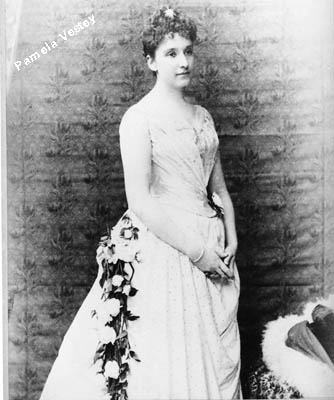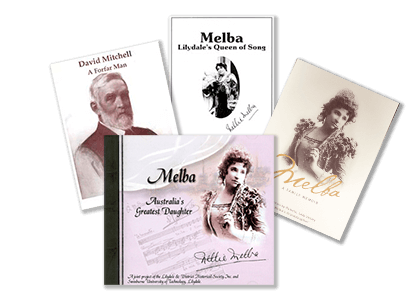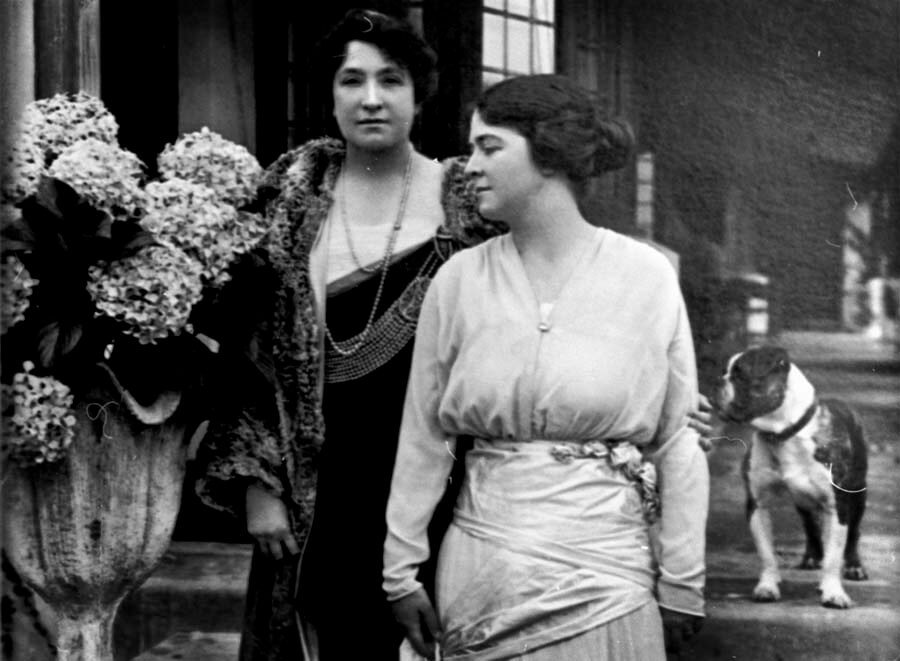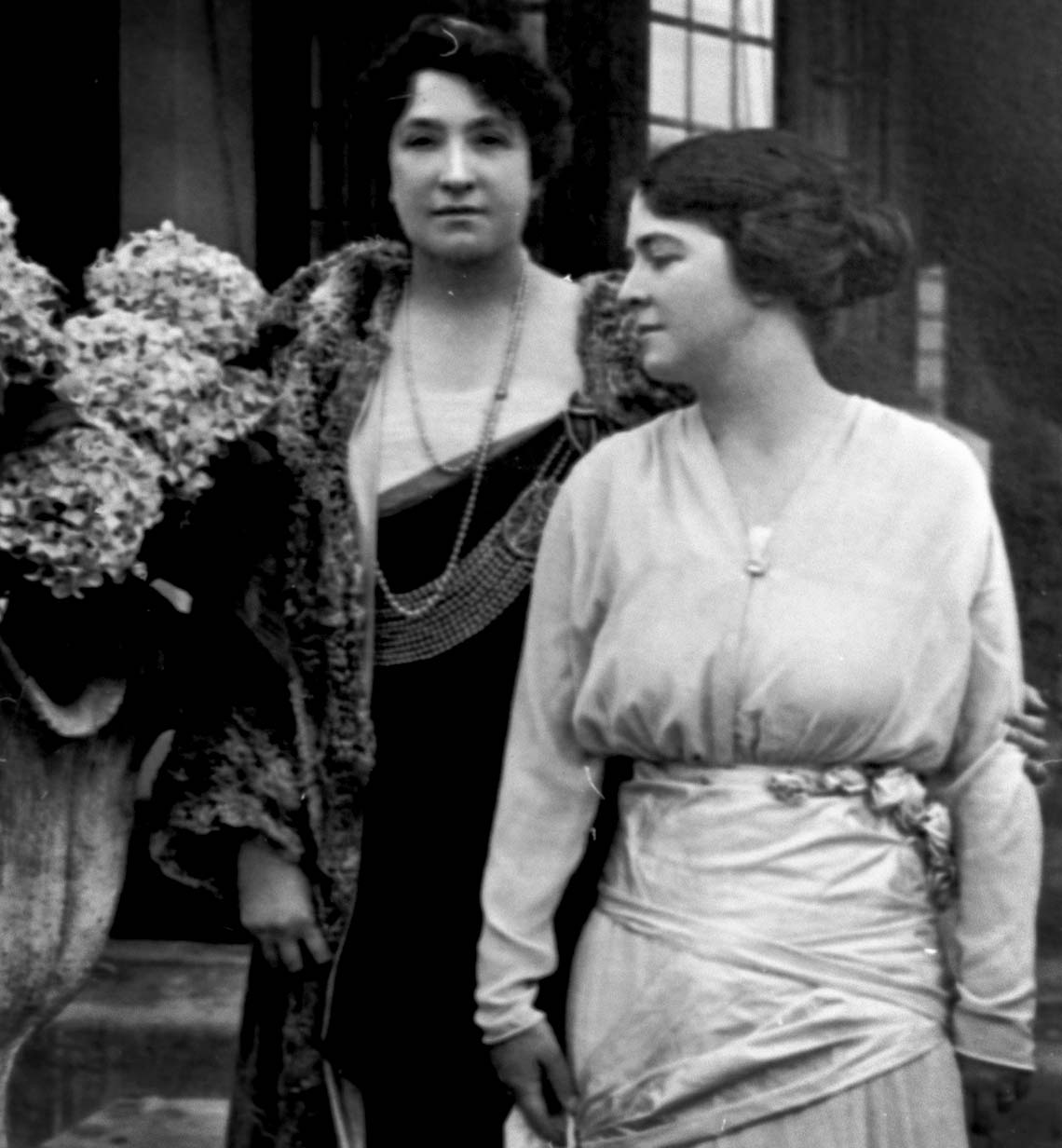
Biography | Operatic Debut in Brussels
Introduction
The timely death of Maurice Strakosch at the circus finally freed Nellie from his 10-year contract and at last she could go to Theatre de la Monnaie and prepare for her debut as Gilda in Rigoletto.
Francois-Auguste Gevaert
One couple who offered great support to Melba were Francois-Auguste and Marie Gevaert. It was through Marchesi that Melba met the couple. In a letter from Marchesi to Nellie when she first arrived in Brussels:
A word about M. and Mme Gevaert. I’ve written them a letter to formally introduce you! If you need a nanny discuss it with Mme Geveart. She’s a charming lady. (1)
Francois-Auguste Gevaert, the Belgian musicologist, teacher, opera composer and one-time music director of the Paris Opera, was then director of the Brussels Conservatory. Gevaert took a fancy to Nellie’s son and often had him and his mother to lunch with him on Sundays. (2)
The friendship and the support of the Gevaert family was especially helpful to Nellie. Felix, as his friends called him, was a wise and kindly man, and he and his wife at once adopted Nellie and George, providing them with the comfort of a happy and respectable family background. (3)

Nellie’s debut
The day of her debut finally arrived. The rain didn’t deter Nellie who had settled herself and George into an apartment in the Rue du Bac in Brussels.
Nellie described the street as dingy after the sparkling streets of Paris. (4) Hung outside the opera house in huge crimson letters was MADAME MELBA. When asked M. Lapissida said Nellie’s name was much bigger than the others because she was the star. (5) Excited, Nellie took George to see the huge letters.
October 13, 1887 was a day of memories for Nellie:
“I remember Marchesi coming to me fluttering and excited in the morning, with Salvatore very dignified and with a big flower in his button hole. I remember pacing up and down the room, thinking all the time of sunshine on the gum trees so far away in Australia, and I remember that as the light faded, my spirits sank.” (6)
In a sort of dream Nellie let the dresser get her ready and was shocked when a fair wig was put over her head. Perhaps it was a sign of things to come but Melba rebelled: “hate that wig. It is not me. I won’t have it.” M. Dupont agreed to let her use her own hair and for the first time on any European stage Gilda appeared wearing plaits and her own hair. (7)
Charlie had travelled to Brussels for his wife’s debut and sat with the Marchesis. Like everyone else, he was adding his bravos and applause at Nellie’s performance. The applause was unlike anything Nellie had heard before. She knew she had succeeded and her dream had come true. (8)
After the third act, Nellie was summoned to the Royal Box and curtsied to the first Queen she had met.
“How gentle and sweet she was, this long-suffering wife of King Leopold, with her grey hair and her diamonds and the soft voice with which she told me, ‘You are wonderful!’ She made me love her from the first moment that I saw her.” (9)
The next morning Nellie woke up and found that she was famous all over Europe.
Agnes Murphy sums up the Belgian reviews on Melba’s operatic debut:
The Independance Belge next day wrote of her as a “revelation,” and described her voice as unique in quality, with a remarkable trill and perfect technique; while her person was described as elegant and distinguished, and her face mobile and sympathetic. Melba was also complimented on her intelligence in acting.
Veteran connoisseurs said they could not believe their ears when they heard her incomparable crystal voice. La Chronique, in dwelling on “the sensation of the day,” alluded to the warm, velvety quality of her superb voice, her trill of mathematical exactitude, her distinguished and gracious presence and sympathetic face.
The L’toile Belge was equally favourable, and, accepting her also as a revelation and a star, boldly placed the young Antipodean with ‘the profile of an Empress’ in the same category with Patti and Nilsson.
Le Menestrel noted that she sang with remarkable sentiment, style, and expression. La Réforme was enthusiastic over the exceptional purity of her voice and the charm of her singing; and La Patriote, in a summary of her success, said:
“Before two years Madame Melba will be known as La Melba.” All the papers were in the same vein, and, as it happened, within a single month the Brussels critics designated the young novice La Melba. Madame Marchesi, who had come to Brussels for her pupil’s debut, was delighted.(10)

Mathilde and Salvatore Marchesi returned to Paris and as soon as she arrived home, Madame Marchesi wrote a reply to a letter from Nellie:
“You’ve been well feted, spoilt and pampered and with good reason, because you sang and acted so perfectly, I can but praise you, but at the same time I warmly recommend you change nothing of your method and to maintain always this purity of style and diction that you have today. Without hesitation the public has recognized your wonderful talent and it’s vital that your success increases day by day.” (11)
Three days later, George celebrated his fourth birthday in suitable fashion. Charlie and Nellie were proud of their son who was now a confident little boy. (12)
Charlie returned to England realising that their marriage was all but over as he did not belong in her new world of singing, opera and stardom.
On November 9, 1887, only three weeks after her debut Nellie was again centre stage appearing as Violetta in La Traviata, singing in Italian.
Agnes Murphy wrote about the press reviews for Melba’s performance of La Traviata on November 9, 1887:
L’toile Belge said:
“Those who were at the last representation of ‘Rigoletto’ were able to note the great progress made by Madame Melba in the scenic interpretation of the part of Gilda, and how this exquisite singer was asserting herself as a comedian.
Even they would have been surprised at the really remarkable manner in which she has composed the part of the ‘Traviata.’
We felt sure that she would invest the character with rare distinction, a charming physiognomy, and all the seductions of a marvellous voice, but we could scarcely expect that she would have so completely understood and rendered its touching features, the phases of passion and tenderness, and the heartrending conclusion. Not only is it Violetta the perfect Italian singer, but it is also Dumas’ Marguerite Gautier. Her person and deportment are perfectly adapted to the portrait an depicted by Dumas.” (13)
The third role Melba performed that season was as Lucia in Donizetti’s Lucia di Lammermoor.
Melba was also busy studying Lakmé which was to be performed in French on March 8, 1888. Nellie was fortunate to be able to study it with composer Leo Delibes.
Melba’s accent was still deemed to be unsatisfactory and when Delibes was consulted he replied:
“Qu’elle chante ‘Lakmé’ en francais, en italien, en allemand, en anglais, ou en chinois, cela m’est egal, mais qu’elle la chante.” (14)
Melba sang in French for the first time and was again a success.
Afterwards, she continued to study French with Mademoiselle Tordeus for six hours a day to master the language. Melba’s last opera for the season was Hamlet performed in April 1888. Again Nellie worked with its composer – Ambroise Thomas – who described her as “The Ophélie of my dreams.” (15)
During the Brussels’ season Melba’s contract required her to give 10 performances each month.
Lady de Grey
One visitor to Théàtre de la Monnaie was Lady de Grey, an ardent and influential supporter of Covent Garden, London who was so impressed with Melba’s singing she asked the manager Augustus Harris to go to Belgium and hear for himself.
He did so and offered Nellie a contract for 1888 season that began in May. In the future Lady de Grey was to become a firm friend to Melba.
At the end of the Monnaie season, Melba packed and George and her left for England and took lodgings in Bayswater. Excitedly, the new opera star looked forward to making her debut at Covent Garden.
Another person to see Melba on stage was Polish pianist and later political leader Ignace Paderewski.
References
(1) P. Vestey, Melba: A Family Memoir, Pamela Vestey, Coldstream, Melbourne 2000, Letter Marchesi to Nellie September 30, 1887, pg. 34.
(2) T. Radic, Melba The Voice of Australia, The Macmillan Company of Australia Ltd, Melbourne, 1986, pg 51 and 52.
(3) P. Vestey, op. cit. pg 40.
(4) N. Melba, Melodies and Memories, Thornton Butterworth Ltd, London, 1925, pg 44.
(5) N. Melba, op. cit., pg 45.
(6) N. Melba, op. cit., pg 45.
(7) N. Melba, op. cit., pg 46.
(8) P. Vestey, op. cit., pg 36.
(9) N. Melba, op. cit., pg 46.
(10) A. Murphy, Melba: A Biography, Doubleday, Page & Co, New York, 1909, pg 28 – 29.
(11) P. Vestey, op. cit., in letter from Mathilde Marchesi October 15, 1887, pg 36.
(12) P. Vestey, op. cit., pg 37.
(13) A. Murphy, op. cit., pg 28 – 29.
(14) A. Murphy. Op. cit., pg 31.
(15) A. Murphy, op. cit., pg 32.
Online Shop
Purchase books, CDs, photographs and other merchandise



Share Your Information with the Museum!
Email us your info (and images) to:
[email protected]
Our home is the Old Lilydale Court House:
61 Castella Street, Lilydale 3140
Hours of opening:
By appointment only:
Fridays 1 to 4pm and Saturdays to Mondays 11am to 4pm.
Sundays are preferred.
Closed Public Holidays

Nellie Melba Museum
Contact Details:
Sue Thompson: 0475 219 884
Email: [email protected]
Share your info with us:
[email protected]
Our home is the Old Lilydale Court House:
61 Castella Street, Lilydale 3140
Hours of opening:
By Appointment only:
Fridays 1 to 4pm and Saturdays to Mondays 11am to 4pm.
Sundays are preferred.
Closed Public Holidays

Nellie Melba Museum
Contact Details:
Sue Thompson: 0475 219 884
[email protected]
Nellie Melba Museum
Contact Details:
Sue Thompson: 0475 219 884
[email protected]
Our home is the Old Lilydale Court House:
61 Castella Street, Lilydale 3140
Hours of opening:
By appointment only:
Fridays 1 to 4pm and Saturdays to Mondays 11am to 4pm.
Sundays are preferred.
Closed Public Holidays
Share Your Information
with Nellie Melba Museum!
Sue Thompson: 0475 219 884
[email protected]

